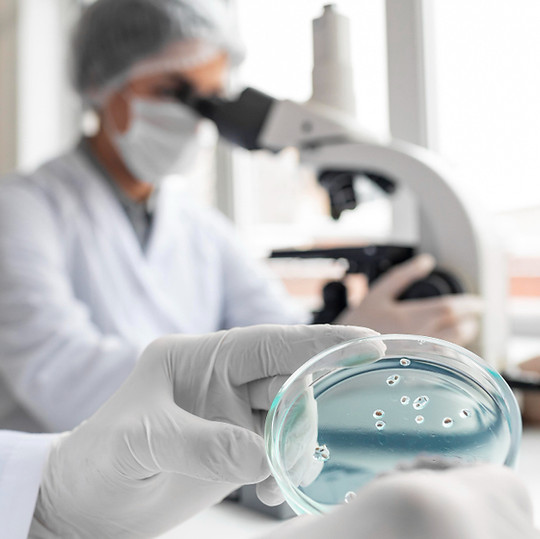
DFI
DFI
What is DFI?
At Hzb Arogyam Fertility Care and Endoscopy Centre, we understand the importance of assessing sperm health to optimize fertility outcomes. The Sperm DNA Fragmentation Index (DFI) is a vital diagnostic tool that measures the extent of damage to the DNA within sperm cells.
DFI testing helps our fertility experts evaluate the integrity of sperm DNA, identifying potential damage that may impact fertility. By assessing DFI, we can better understand the underlying causes of infertility and develop personalized treatment plans to enhance fertility potential.
Overview
At Hzb Arogyam Fertility Care and Endoscopy Centre, we recognize that male factor infertility plays a significant role in many cases of infertility, with approximately 50% of conditions linked to male-related issues.
Traditional semen analysis, which assesses sperm concentration, motility, and morphology, has long been the standard evaluation for male fertility. However, this analysis does not provide insight into the genetic integrity of the sperm, a crucial factor for healthy embryo development.
Sperm DNA Fragmentation (DFI) testing offers a more comprehensive understanding of sperm health, enabling our fertility experts to identify potential issues that may impact fertility outcomes. High DFI has been linked to various factors, including advanced age, inflammation, unhealthy lifestyle habits, and environmental exposures.
By incorporating DFI testing into our diagnostic toolkit, we can better evaluate male fertility potential, address underlying causes of infertility, and develop personalized treatment plans to optimize outcomes for our patients.
Why is it Done?
At Hzb Arogyam Fertility Care and Endoscopy Centre, we recommend Sperm DNA Fragmentation (DFI) testing to diagnose and address underlying male infertility issues, particularly in cases of:
-
Unexplained infertility
-
History of poor or arrested embryonic development
-
Multiple failed Assisted Reproductive Technology (ART) cycles
-
Recurrent miscarriage
-
Advanced male age
-
Varicocele
-
Abnormal semen analysis
-
Exposure to harmful substances, tobacco, alcohol, radiation, and other environmental factors
By conducting DFI testing, our fertility experts can identify potential sperm DNA damage, which may be contributing to infertility or recurrent pregnancy loss. This critical information enables us to develop personalized treatment plans and improve fertility outcomes for our patients.
DFI Procedure
This comprehensive evaluation provides us with critical insights into sperm health, enabling our fertility specialists to develop personalized treatment plans tailored to your unique needs.
At Hzb Arogyam Fertility Care and Endoscopy Centre, our experts conduct Sperm DNA Fragmentation (DFI) testing through a simple and non-invasive procedure:

Why Choose Arogyam IVF?
At Arogyam IVF, we offer a comprehensive range of fertility treatments, backed by a strong network, experienced doctors,
and a patient-centric approach. Here's what sets Arogyam IVF apart:
-
Exceptional Success Rates: Arogyam IVF has achieved remarkable success rates, thanks to our cutting-edge technology, expert doctors, and personalized care.
-
State-of-the-Art Infrastructure: Our modern fertility clinic is equipped with the latest technology, ensuring efficient and effective treatment.
-
Experienced Fertility Specialists: Our team of experienced fertility doctors works closely with each patient, providing expert guidance and tailored treatment plans.
-
Personalized Fertility Treatment: We recognize that each couple's fertility journey is unique. Our personalized approach focuses on individual medical history, diagnosis, and specific needs.
-
Comprehensive Fertility Services: Arogyam IVF offers a wide range of fertility treatments, including IVF, ICSI, IUI, Cryopreservation, and Donor Programs.
-
Patient-Centric Care: Our dedicated team provides compassionate support and guidance throughout your fertility journey, ensuring a seamless and stress-free experience.
Frequently Asked Question's

